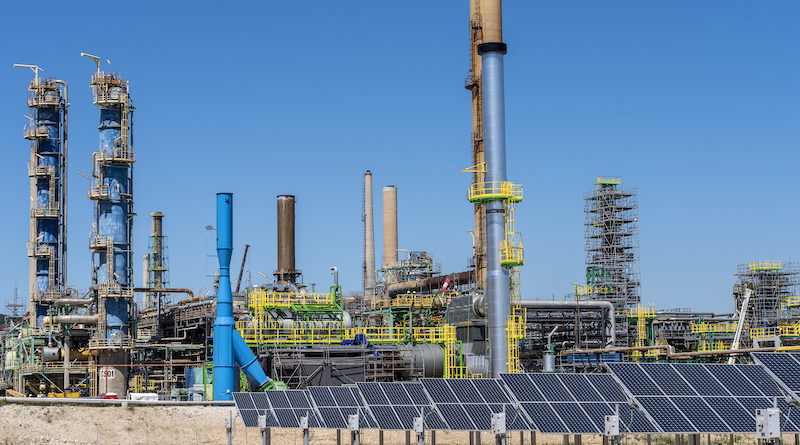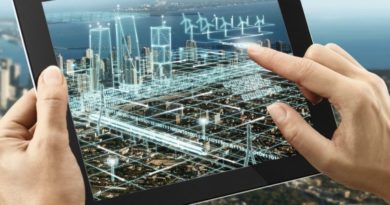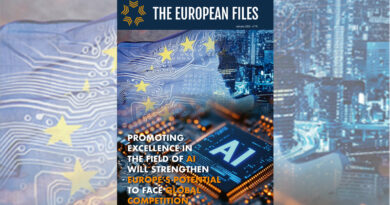
Clean hydrogen: the enabler for smarter integration of energy systems and deeper decarbonation
A few months after the European Green Deal was presented at the end of 2019, and as the Recovery Plan for Europe is being developed, the new European Commission is preparing a strategy dedicated to hydrogen. This strategic plan and the resulting regulatory framework will be of utmost importance to successfully develop the hydrogen sector. Hydrogen can become one of the pillars of both the deep decarbonisation and the recovery of the European economy. Indeed, as a clean energy vector and as chemical feedstock, clean hydrogen has the potential to accelerate the decarbonisation of our energy system and of our industrial production pathways on many levels.
First,
hydrogen as an energy vector is the missing carbon-neutral link between the power and gas systems.
It enables smarter energy system integration and deeper decarbonisation of energy networks through “power to gas” technologies, which couple the gas and electricity sectors (sector coupling). These technologies should provide a cost-effective solution for large-scale, long-duration energy storage and grid service that will be needed to handle the high levels of renewable power generation which are necessary to achieve the energy transition.
Second, in the transport sector, thanks to its high energy density, hydrogen (as well as hydrogen-based fuels) stands out as some of the most promising solutions to decarbonise heavy-duty or intensive-use road vehicles (trucks, buses, utility vehicles) as well as trains and ships. Thus, like other renewable gases or biofuels, clean hydrogen is emerging as a fitting solution to complement battery-electric vehicles.
Third, the development of clean hydrogen is also an opportunity to decarbonise the European gas grid and the use of energy for heating in buildings. Indeed, most recent studies from European gas infrastructure operators show that the existing gas grid could carry a proportion of blended hydrogen without any major upgrade. This decarbonisation of the European gas infrastructure is necessary to deeply decarbonise heating and ensure the global resilience of our energy system.
Finally, in the industrial sector, using clean hydrogen could decarbonise the large amounts of hydrogen currently used as feedstock for refining, for the production of chemicals (ammonia and methanol), and for metal processing. Today, these processes use hydrogen that is mainly produced from natural gas.
Using clean hydrogen instead does not require any changes to these industrial processes. It would also create an opportunity to scale up technologies such as electrolysis and CCUS2.
Clean hydrogen can also open the path to a circular economy using the CO2 captured and producing materials and chemicals.
For all these reasons, TOTAL strongly believes that developing clean hydrogen can massively contribute to the European Green Deal, and we are ready to be part of this adventure. At the group level, developing clean hydrogen is already a priority because it is both a means to decarbonise our own industrial activities and a new solution to provide cleaner energy to our customers. We combine it with the other low-carbon solutions that we offer, such as renewable power, natural gas and biogas, and biofuels. To accelerate the development of clean hydrogen, both within TOTAL and for our customers, we have created a new Hydrogen Business Unit dedicated to the implementation of hydrogen solutions this year, as part of TOTAL Carbon Neutrality Businesses.
TOTAL has already been active in the hydrogen sector since many years, both as a producer, as a consumer and as a distributor. We are also developing clean hydrogen solutions. In the transport sector for instance, we operate a network of more than 30 hydrogen refuelling stations in Europe (mainly in Germany) and we have invested in the largest gas & hydrogen mobility companies in the USA. We are also studying how to deploy hydrogen within our network of NGV stations in Europe. In the industrial sector, we are tackling the decarbonisation of our own hydrogen consumption through a series of ambitious projects. One of them aims at supplying green hydrogen to the biorefinery in La Mède (France) by developing and integrating an entire industrial system combining renewable power generation, storage, and green hydrogen production. We are also part of a project to test a new electrolysis technology to produce synthetic methanol through a combination of clean hydrogen and captured CO2 in one of our refineries in Germany (E-CO2MET project). Indeed, CCUS technologies can also provide relevant solutions to produce low- carbon hydrogen. Consequently, they should constitute an integral part of the European hydrogen strategy, in a technology-neutral approach that ensures that all low-carbon hydrogen technologies can realize their full potential.
Whatever the technology used, developing clean hydrogen requires the implementation of complex ecosystems all along the value chain, from production to end uses.
This, in turn, requires smart system integration capability. Through its various activities and commitments along the hydrogen value chain, TOTAL is well-positioned today to support this development and deliver the integration part. But developing clean hydrogen is not a one-company job. Therefore, through the new hydrogen strategy, Europe must seize the opportunity to develop a strong, competitive, and high value-added European industry, that is fully integrated along the whole hydrogen value chain. This will be key to ensuring that Europe remains self-reliant, at the cutting edge of technology, and thus able to compete worldwide to develop hydrogen.
Of course, to trigger this development, it is essential that the upcoming European strategy provides the right policy framework with ambitious targets and support for low-carbon hydrogen technologies (through a technology- neutral approach) to remove the current barriers hindering a large-scale deployment of hydrogen in the European economy.




